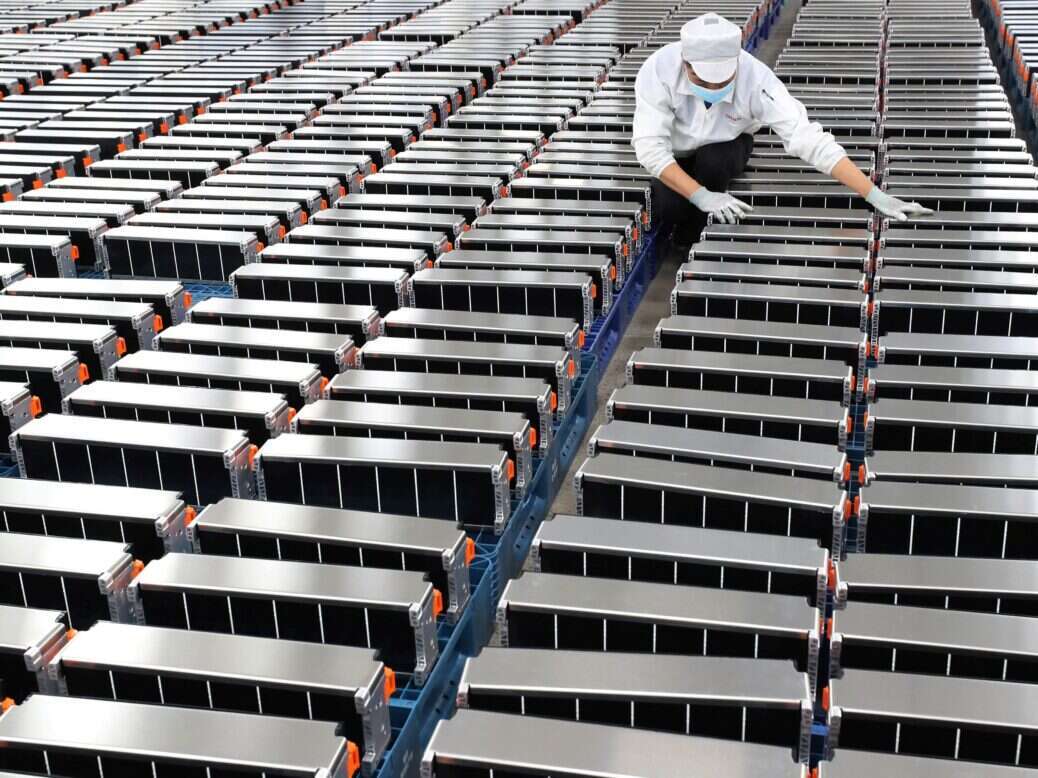
It has been a long summer in global affairs. Having started in June with the G7 leaders gathering in Cornwall for a summit billed as proof that “the West is back” after the traumas of Donald Trump’s presidency, it ended with the chaos of America’s botched withdrawal from Afghanistan. That brought proclamations of the West’s humiliation and of the tilt of global power towards China. Yet while such dramatic, self-contained moments – telegenic for either agreeable or terrible reasons – naturally grab our attention and weave the narrative of our times, they are not the whole story. In the background the world changes in ways that may be just as significant, or perhaps even more so, but happen to be too diffuse, unglamorous or complex, and so go under-discussed.
One such development that attracted only modest interest was that the lithium price (specifically the price for lithium carbonate) hit a record $16,500 per tonne in mid-August, up from $6,124 a tonne last December. And this matters, certainly more than the G7 summit and quite possibly more than the debacle in Kabul.
At the Cop26 summit in Glasgow this November – another big moment when the world’s eyes will focus on one event – governments will hopefully commit to more ambitious reductions in their carbon emissions to bend the future curve of global temperature rises towards 2°C. To fulfil those pledges, they will need to quit fossil fuels faster. Fossil fuels do two things. They supply energy when burned, a function that can be replaced by wind, wave, solar and nuclear power. But they also enable energy to be stored and transported. Replacing that function takes batteries. And making batteries takes lithium.
[See also: How Olaf Scholz and the SPD could lead Germany’s next government]
That is the opening premise of a new book simply titled: Lithium. In it, Lukas Bednarski convincingly argues that lithium will be as fundamental to 21st-century industrial economies as oil was in the 20th century. Back then, the demand for oil took off with car use; the demand for lithium is reaching a similar tipping point now. Volkswagen, the world’s biggest carmaker, plans to launch 30 models powered purely by lithium-ion batteries by 2025. It expects electric cars to comprise 25 per cent of the total sold by then and 70 per cent by 2030. The UK and EU have pledged to ban the sale of petrol-driven cars by 2035 and 12 US states are urging Joe Biden to do the same. (Lithium batteries are also essential parts of laptops and mobile phones.)
And just as the demand for oil shaped today’s global economy and politics, so too, argues Bednarski, will the demand for lithium: “As the history of the oil industry has been centred on the Western world and the Middle East, with the United States of America playing a leading role, so the lithium industry centres on Asia and Latin America, with a leading role for China.”
That leading role for China began as a product of necessity. The country’s economic boom from the 1980s came too late for it to rival the established players in a world shaped by the internal combustion engine: it could neither influence the geopolitics of oil nor establish carmakers capable of competing with the American, European and Japanese giants. So around the turn of the millennium, Beijing’s economic planners identified electric cars and their components as a new technology that could reduce China’s reliance on imports and was thus worth supporting.
That early start gave it a big lead. More than five million electric cars are on Chinese roads, close to the total in the US and EU combined, and China’s 42 per cent share of the market for such vehicles eclipses America’s 11 per cent. Fully 101 of the 136 battery factories that are planned for construction globally will be built in China. Chinese firms such as Tianqi Lithium and Ganfeng Lithium (Bednarski compares the latter to Rockefeller’s Standard Oil in the early 20th century) have become the world’s biggest producers of lithium. And Chinese interests, state and commercial, increasingly dominate its supply – including in the so-called Lithium Triangle of Chile, Argentina and Bolivia (the “Saudi Arabia of lithium” as Bednarski puts it). Together these three countries are expected to provide about 60 to 70 per cent of the world’s lithium by 2025.
[See also: Why only radical social transformation can avert a climate catastrophe]
The geopolitical effects of the “lithium race” are already being felt. It is a reason for China’s growing presence in Africa, including its funding for infrastructure projects that support the extraction of mineral resources. In Latin America, the region hit hardest by the pandemic and scarred by long years of sluggish growth and social fractures, Chinese banks provided $43.5bn of loans from 2015 to 2019.
US pressure has failed to keep the state-backed firm Huawei from taking a major role in Latin American 5G networks. And the majority of Covid-19 vaccines administered there have been from China. In other words, while the West has been preoccupied with entanglements such as Afghanistan, Beijing has gained a crucial advantage in a race fundamental to the course of the century.
Particularly galling for American strategists is that the one is now reinforcing the other. Now that the US and its allies have withdrawn from Afghanistan, China is tentatively looking to expand its influence there. “China is our most important partner and represents a fundamental and extraordinary opportunity for us, because it is ready to invest and rebuild our country,” the Taliban spokesman Zabihullah Mujahid told the Italian newspaper La Repubblica on 2 September. And what might encourage Beijing to take the Taliban up on that? Among other minerals, Afghanistan contains some of the world’s largest deposits of lithium.
This article appears in the 10 Sep 2021 issue of the New Statesman, The Eternal Empire





